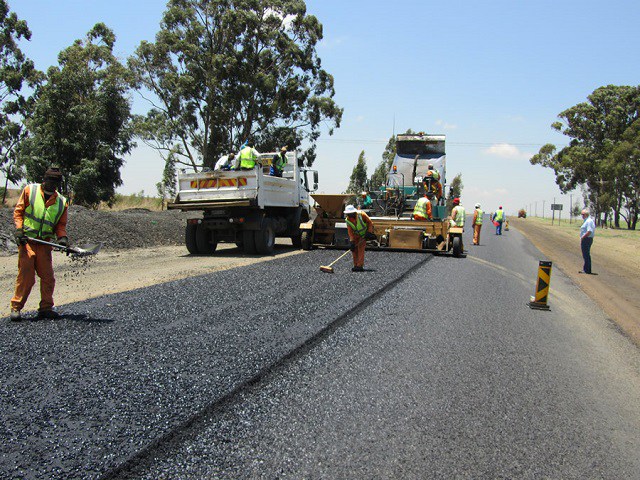Call to unlock more funding for infrastructure projects
THERE is a need to unlock more funding for major infrastructure projects in Zimbabwe with the private sector being called upon to play its part in complementing Government efforts.
This comes as President Mnangagwa has expressed concern over low uptake of infrastructure investments by the private sector, which leaves the Government to shoulder the biggest burden.
Contributing during the inaugural Infrastructure Summit and Expo organised by the National Economic Consultative Forum in Victoria Falls last week, participants stressed the need to create an enabling investment environment that promotes thriving public-private partnerships (PPPs) and transparency in the tendering system.
Despite the adverse impact of sanctions imposed on the country by the West and its allies, the gathering said there was still scope for enhanced infrastructure delivery through harnessing local resources and riding on PPPs.
This includes improving bankability project pitches and enhanced mobilising of national resources ahead of foreign investment.
The meeting also urged Treasury and the financial services sector to mainstream funding of basic infrastructure maintenance for the country to gain investor confidence.
In his official opening speech on Friday that was read by Matabeleland North Provincial Affairs and Devolution Minister, Richard Moyo, President Mnangagwa stressed the need for private sector buy-in saying the Government on its part has done a lot of groundwork but could not do it all alone.
He said the conference theme: “Harnessing the potential of public private partnerships to resolve infrastructure challenges in Zimbabwe”, must inspire and improve private sector contribution as the country drives towards achieving an upper middle-income economy by 2030.
Delegates follow proceedings at the inaugural Infrustructure summit in Victoria falls.(Pictures Eliah Saushoma)
During debates, participants concurred with the President on the need for increased collaboration to close the infrastructure funding gap in the country through PPPs. They also called for inclusion of the corporate sector at policy formulation to gather their input and involvement in project rollout.
Finance and Economic Development Deputy Minister, Clemence Chiduwa said meeting the objectives of the country’s National Development Strategy (NDS1 was largely hinged on quality infrastructure and called for closer collaboration in bridging existing gaps.
“Government cannot do this alone, we can only go further together,” he said.
Prominent economist and member of the Africa South Business Group, Mr Eddie Cross, said investing in infrastructure must be the centre of all development focus and urged local companies to also exploit opportunities in the wider region.
Deputy Minister of Finance and Economic Development, Clemence Chiduwa
He said some of the major investments such as the new steel plant under construction in Manhize near Mvuma, must be complemented by viable energy, road and rail infrastructure linking it to major productive destinations at home and abroad.
Zimbabwe Investment Development Agency (Zida) representative, Ms Silibaziso Chizvina, said the huge infrastructure investment shortfall can be covered by the private sector.
“There should be an infrastructure plan to realise full implementation of NDS1. When we start infrastructure development, we activate the manufacturing sector and the private sector should come in and identify gaps,” she said.
“We need a financial investment model that can lead to financial institutions funding infrastructure for long tenure at concessionary interest rates, long term financing.”
National Housing and Social Amenities Permanent Secretary, Engineer Joy Makumbe, said Zimbabwe needs a supportive policy environment that promotes integrated approaches to infrastructure development.
Transport and infrastructural Development Permanent Secretary, Engineer Theodius Chinyanga, said the available infrastructure projects opportunities are not really viable hence the need to come up with a model to create attractiveness.
“As the Government we really need to act in a business manner and right-price our services. Some of the challenges are a result of the pricing system and we need right models that attract investors and it is important to understand that investors are not donors because they want to get returns for investment,” he said
Earlier in his welcome remarks earlier, Deputy Chief Secretary to the Office of the President and Cabinet and NECF steering committee co-chair, Ambassador Nicholas Dlamini Kitikiti, said there was a need to put heads together to come up with solutions to challenges affecting the country’s infrastructure development.
Infrastructure development
“While recognising the great efforts by Government in terms of developing and financing infrastructure as the nation seeks to deliver on NDS1 objectives and move towards the achievement of Vision 2030, stakeholders highlighted the need to also crowd-in private sector players bridging the infrastructure financing gap, through models such as public-private partnerships,” he said.
“The need for creating an enabling environment for the participation of such private players as well as ensuring strong coordination in the development and delivery of infrastructure projects was also emphasised.
“In light of the above, the NECF realised the need for a multi stakeholder dialogue on infrastructure development,” said Amb Kitikiti.
He said the major objective of the gathering was to find ways of putting into practice known and novel ways of addressing challenges affecting infrastructure development in Zimbabwe with a particular focus on PPPs.-chronice.zw









